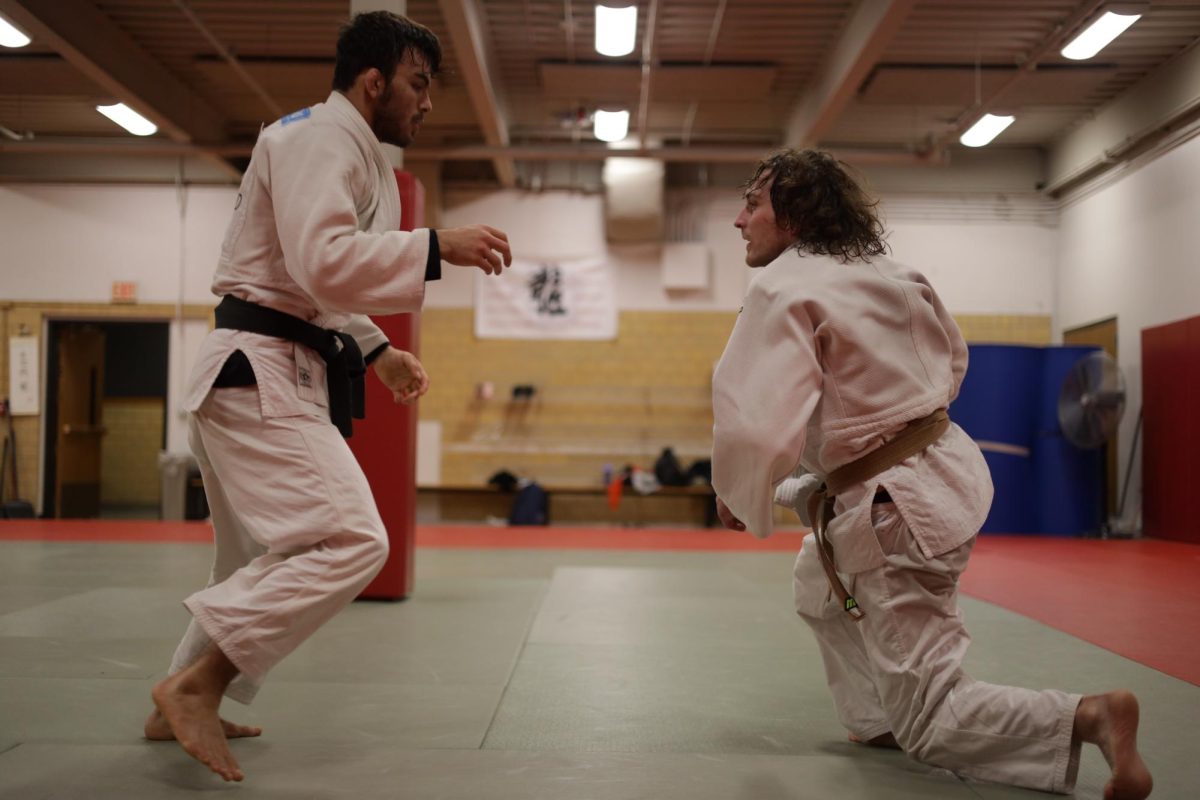Research on cows may help humans
October 14, 2002
Professor Mark Ackermann needs to look no further than to his own son for inspiration in his research.
His son suffers from respiratory diseases. Ackermann, a professor in the College of Veterinary Medicine, focuses his research on natural ways of combating respiratory diseases.
He recently received the 2002 Pfizer Excellence in Bovine Research Award for his work.
Ackermann said he is happy to be working on research that has such a large potential to help people and hoped his research would someday help make his son’s life a little easier.
“We’ve worked on antibiotics for 100 years — this is kind of a newer area,” Ackermann said. “I’d rather be working on something that has a larger payoff in the long run.”
Ackermann’s research focuses mainly on respiratory diseases in cattle.
“When newborn calves are under stress they may develop pneumonia,” Ackermann said.
He said the stress cattle suffer during shipping may also cause respiratory diseases.
Farmers lose millions of dollars each year to deaths resulting from the disease and the cost of treating it, he said. “Some [calves] recover, but they don’t grow as well,” Ackermann said.
Cattle have an innate ability to fight off respiratory disease by using peptides, which are produced naturally in the skin and lungs. Ackermann is studying ways to enhance the presence of peptides to fight disease, eliminating the need for expensive and sometimes ineffective vaccines.
Much of Ackermann’s research can also be applied to humans, he said. “Some of the peptides [in humans and cattle] are identical,” he said.
People at high risk for respiratory disease, including premature infants and people suffering from cystic fibrosis, could be helped by peptide research, Ackermann said.
Ackermann was honored at the annual meeting of the American Association of Bovine Practitioners held Sept. 26 in Madison, Wis. He received $500 and a plaque.
Tracy Raef, communication specialist for the College of Veterinary Medicine, said bovine researchers throughout the United States are considered.
“[The award is] pretty prestigious,” Raef said. “It’s awarded by a major pharmaceutical company once a year.”
Rachel Derscheid, senior in animal science, participates in the work-study program under Ackermann. She said his research has the potential to help a lot of people.
“He’s working on very common diseases,” she said. “But not only that — some of the research he’s doing will also help other sciences.”
She said she has learned a lot while working with Ackermann.
“He really seems to enjoy his work and devotes time to that,” she said. “But he’s also not a workaholic.”






